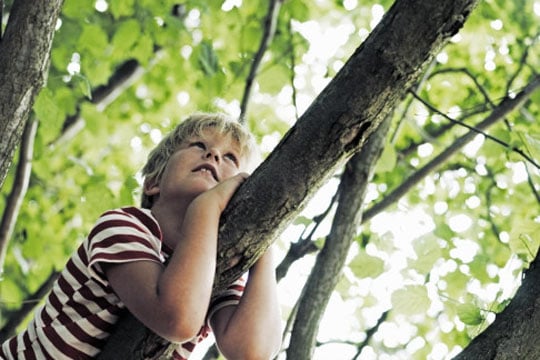Children Love to Learn
- Open and honest communication will create a lifelong closeness with your child.
- Routines and responsibilities will let your child know what to expect. When a rule is broken, a natural consequence needs to follow.
- As you teach your child how to be independent, you also need to teach how to be safe.
- Learning how to be a good friend is an important skill you can teach your child.
- Your little one is starting to explore the world outside your home. This is exciting, but can be scary!
Children from 4 to 6 years old are:
- Beginning to develop their independence and form real friendships.
- Learning rules to more difficult games.
- Developing important life skills.
Set Limits
When children do something against the rules, explain simply and in a few words:
- That what they did was wrong
- What will happen if the behavior continues Consequences need to be logical, meaningful, and simple. For example:
- If your child rides a bike without a helmet, the bike is off limits for a day or two.
- When your child won’t share a toy, that toy can’t be used for the rest of the day.
Create and Keep Routines
- Teach about rules by setting up daily routines.
- Children do best when they know what to expect.
In the morning:
- Use the bathroom
- Get dressed
- Have breakfast
At bedtime:
- Take a bath
- Brush teeth
- Read a story
Schedule specific times for TV, video games, and use of the computer. When you know what your child is watching, you can avoid violence and other unacceptable content. Limit “total screen time” to no more than 2 hours a day.
Read at bedtime. This helps your child:
Have meals together as much as possible.
This is a great way to spend time together and share family traditions, while also teaching good eating habits and table manners.
Take Time to Talk and Listen
Children feel important when adults take the time to talk with them. Talking often, and about many things, helps them gain self-confidence. Ask about friendships and the activities that your child enjoys. Talk about your own best and worst experiences.
Ask your child:
- “What was the best part of today?”
- “What was the hardest part of today?”
Let your child know that it’s OK to have and talk about negative feelings. Share the best and hard parts of your day. This teaches your child that we all have ups and downs.
Assign Responsibility
When young children copy everyday household tasks, they are really learning how to contribute. With your support, tasks will soon be done with few reminders. As children grow older, they can begin to take on real responsibilities, such as:
- Setting the table
- Putting away their toys
- Feeding the pets
- Placing dirty clothes in a basket
Watch your child’s self-esteem grow when given the chance to help out.
Encourage Independence in Bathing and Dressing
At first, this may take a little more time than helping your child get dressed or take a bath, but
it is time well spent. Independence comes with practice, and with your guidance.
If you get the clothes ready the night before, the morning routine will involve only getting dressed. This way, your child can focus on just one thing. Your child may need to be reminded of all the steps.
- In the morning, when you get up,
- First, use the bathroom,
- Then, take off your PJs,
- And then, put on your clothes.
Praise your child’s efforts and successes:
“You did a great job getting yourself ready for school today!”
Click here to read the rest of the article.


